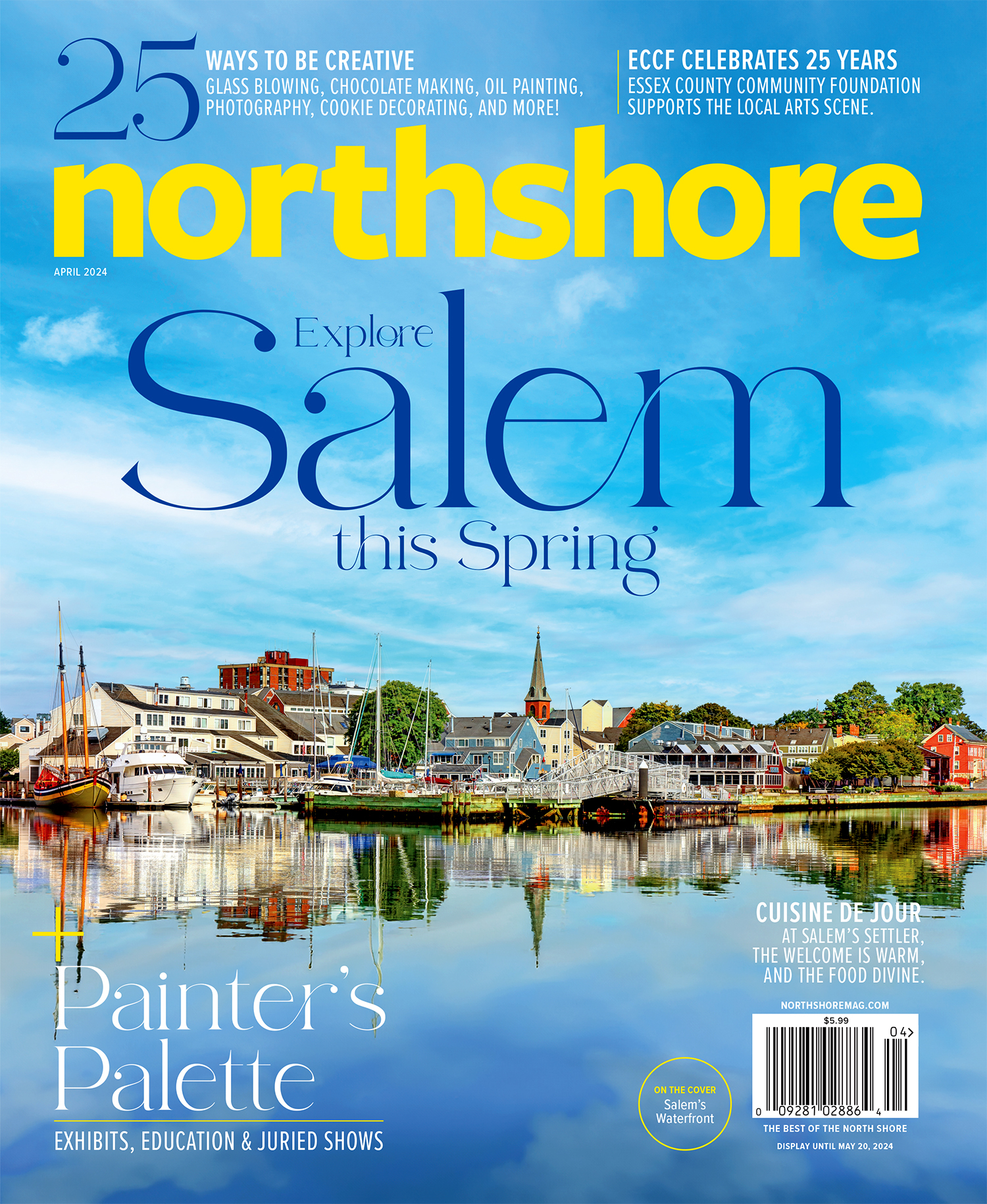The Lanam Club in Andover recalls a time when adults dressed elegantly for dinner, children in short pants and pinafores gleefully slid down ornate banisters, and men and women socialized separately after dinner.
Many of the private social club’s rules have been relaxed since it was founded in 1957—when it first opened its doors, it was a club for men only. But change comes slowly. When Lisa Ann Myers, secretary of the club’s board of directors, joined in 1997, female members were still fairly uncommon. Even then, most of the women seen at the club were wives of members. These days, female members are commonplace, but a dress code barring jeans and shorts from the main dining room is still enforced and cell phone conversations must take place outside the building.
“It’s a throwback to when civilized life used to exist on the planet,” Myers, owner of PulseCare Medical in North Andover, says with a laugh, adding that the recent decision to add TV sets to the bar area was met with much wringing of hands.
The ambiance of the club demands certain decorum. It has been a gathering place for the community’s well-heeled for nearly a century. The Lanam—an acronym for the surrounding towns of Lawrence, Andover, North Andover, and Methuen—is housed in a mansion built in 1916 by industrialist William M. Wood. In his role heading the American Woolen Company, Wood was among the highest-paid executives in the country, and he spared no expense when constructing the house for his son. He commissioned craftsmen to customize millwork and cast the dramatic plaster ceiling over the main dining room, all of which is carefully preserved by today’s members. Portraits of Wood and his son are like sentinels in the lounge, perhaps inspiring Merrimac River Valley’s elite in their own endeavors.
When Wood’s mansion became the Lanam Club in the 1950s, a social club was needed, says general manager Timothy Hart, noting that networking venues were limited to a burger joint and a donut shop. Although the area is now peppered with haute establishments for dining, socializing, and networking, there remains something special about a club.
“The thing that separates a club like this from a restaurant is: we know your name, we always have a table for you, and we know your preferences,” says Hart.
To maintain that clubby atmosphere, membership is limited to a select group of 250 people. In order to join, applicants must be nominated, and then approved by the board. Privileges extend beyond dining and socializing at the Andover club; members are able to visit more than 100 reciprocal clubs across the country, on both coasts of Canada, and abroad in locations that include China, England, France, and Korea.
“If a member is traveling, they sometimes ask if we can add a club in that area, and we try to oblige,” Hart says.
While old-world service and social niceties are the norm, one change that was most welcomed was Myers’s offer to renovate the third floor, which went unchanged for decades. The neglected space, featuring a threadbare pool table and a defunct dressing room, was not particularly functional or appealing.
“When I joined the board, I wanted to give something back,” Myers says of the project, which transformed the space into a relaxing bar and lounge known as the Saratoga Room—hung with mementos from Myers’s personal collection of horse racing memorabilia. There is also a bridal room outfitted with an antique dressing table, mirrors, and freshly reupholstered furniture.
While Myers spearheaded (and funded) the project, she is quick to point out that a lot of people pitched in, from tradesmen who offered their services at a discounted rate to fellow club member and friend Helene Gerson, owner of Leading Edge Electronics. “Gerson was a huge help with the renovation project, and many of the antiques [belonged to] her mother,” Myers says.
Changes like the third-floor renovation, as well as the creation of a less formal café with a separate entrance, appeal to younger people, who have started to appreciate the club’s merits. Older members have their sights on passing the torch, Myers says. “We are handing the baton to another generation and saying, ‘It’s your turn to care for this.’”
